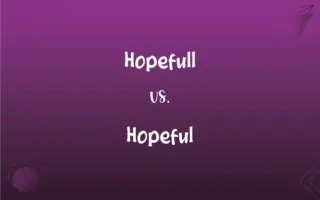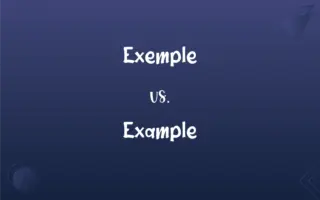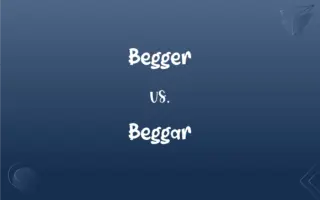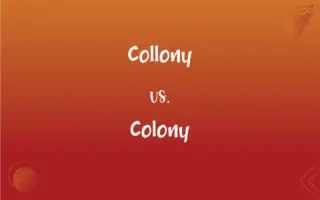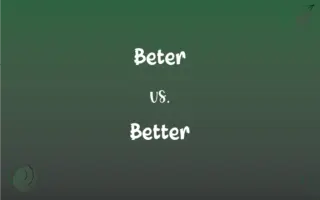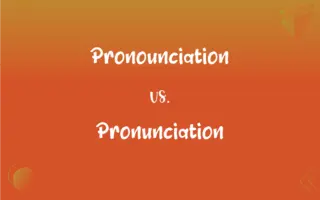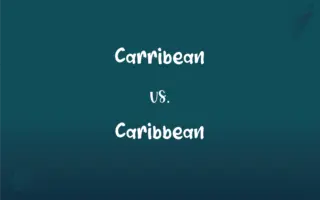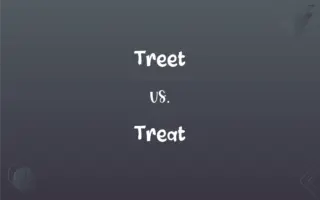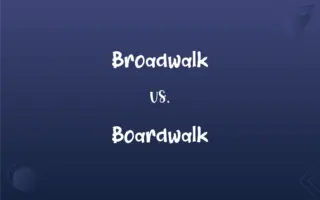Destinct vs. Distinct: Mastering the Correct Spelling
Edited by Aimie Carlson || By Janet White || Published on March 21, 2024
"Destinct" is incorrect, whereas "distinct" is correct spelling. "Distinct" means clearly different or distinguishable.
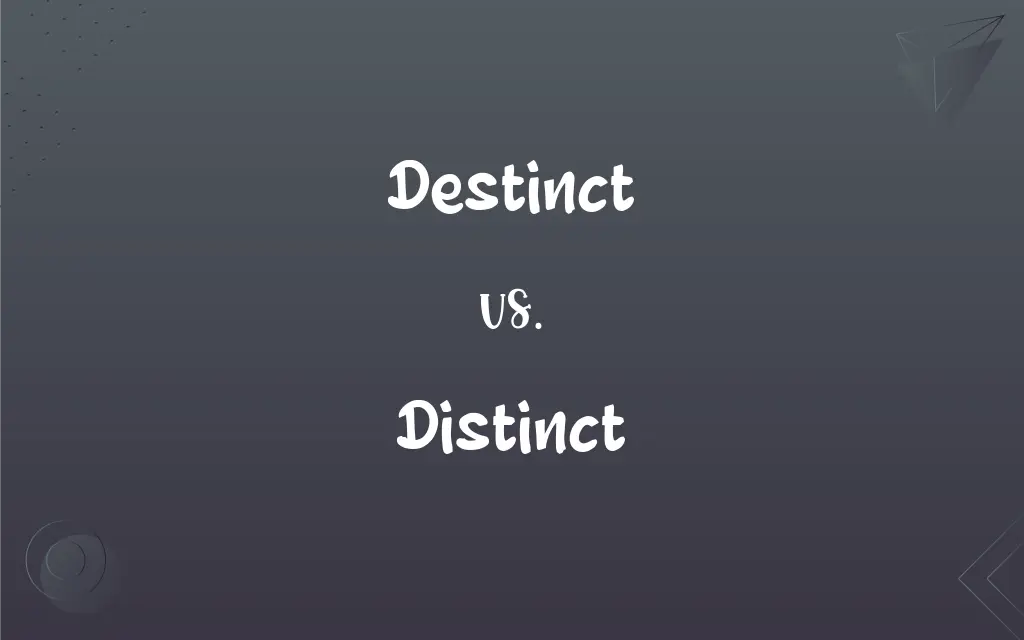
Which is correct: Destinct or Distinct
How to spell Distinct?

Destinct is Incorrect

Distinct is Correct
ADVERTISEMENT
Key Differences
Associate "distinct" with "distinguished," both starting with "dis" and indicating uniqueness.
Use the phrase "distinct is not extinct" to remember the "in" part.
Recall "distinct" contains "in," indicating "inside" to differentiate things clearly.
Break it down: "dis" + "tinct" reminds that "tinct" sounds like "tink," a clear, sharp sound, symbolizing clarity.
Note the absence of "de" in "distinct," unlike "destinct."
ADVERTISEMENT
Correct usage of Distinct
The colors in the painting looked very destinct.
The colors in the painting looked very distinct.
The destinct aroma of coffee filled the room.
The distinct aroma of coffee filled the room.
The two species are destinct from each other.
The two species are distinct from each other.
He had a very destinct way of speaking.
He had a very distinct way of speaking.
Their opinions on the matter were destinct.
Their opinions on the matter were distinct.
Distinct Definitions
Noticeably different; specific.
He plays a distinct role in the organization.
Markedly separate or apart.
There are three distinct categories.
Easily distinguishable from others; clear.
The twins had distinct personalities.
Recognizable; clear in sound or appearance.
Her voice was distinct even from a distance.
Having a unique quality or characteristic.
The dish had a distinct flavor.
Readily distinguishable from all others; discrete
On two distinct occasions.
Easily perceived by the senses
A distinct flavor.
Distinct Sentences
She has a distinct style of writing that sets her apart.
They offer a product with distinct advantages over competitors.
A distinct sound in the night made me wake up.
The painting's distinct use of color caught everyone's attention.
She remembered him because of his distinct laugh.
Each fingerprint is distinct, like a personal signature.
The chef added a distinct flavor to the dish with exotic spices.
The sky's distinct shades of pink and orange marked the sunset.
The teacher's distinct approach to education was very effective.
Distinct cultural differences are evident in their traditional clothing.
The twins look alike, but they have distinct personalities.
The distinct outline of the mountain was visible at dawn.
The bird's call was distinct from others in the forest.
His voice was distinct even in the crowded room.
He has a distinct way of solving problems.
His distinct handwriting was easy to recognize.
The company's distinct logo is known worldwide.
He made a distinct impression with his innovative ideas.
Each artist brings a distinct perspective to the gallery.
The garden was full of distinct smells from various flowers.
The distinct pattern of the fabric was eye-catching.
There's a distinct difference between right and wrong.
Their distinct architectural style sets their buildings apart.
The distinct aroma of freshly baked bread filled the bakery.
The distinct characteristics of the breed make it easily recognizable.
FAQs
What is the root word of distinct?
The root of "distinct" comes from the Latin word "distinctus," meaning "distinguished" or "different."
What is the pronunciation of distinct?
Distinct is pronounced as /dɪˈstɪŋkt/.
Why is it called distinct?
It's called "distinct" because it denotes being clearly different or distinguishable from others.
What is the verb form of distinct?
Distinct does not have a verb form; it is an adjective.
Which article is used with distinct?
"The" or "a" can be used, depending on the context.
Is distinct an adverb?
No, "distinct" is not an adverb. The adverb form would be "distinctly."
Which vowel is used before distinct?
The vowel "i" is used before "n" in "distinct."
Is the word distinct imperative?
"Distinct" is not an imperative; it is descriptive.
How is distinct used in a sentence?
"The artist's style is distinct, setting her work apart from others."
Which preposition is used with distinct?
"From" is often used with "distinct," as in "distinct from."
Is distinct an abstract noun?
No, "distinct" is an adjective, not a noun.
Is distinct a vowel or consonant?
The word "distinct" starts with a consonant.
Is distinct a countable noun?
"Distinct" is not a noun; it's an adjective.
Is the distinct term a metaphor?
"Distinct" can be used metaphorically but is primarily descriptive.
What is a stressed syllable in distinct?
The second syllable, "tinct," is stressed.
What is the singular form of distinct?
The singular form is "distinct."
What is the plural form of distinct?
Distinct is an adjective; it does not have a plural form, but it can describe plural nouns.
Which conjunction is used with distinct?
"And" can be used to join "distinct" with other adjectives.
Is distinct a negative or positive word?
It is neutral, neither inherently positive nor negative.
Is distinct a collective noun?
No, "distinct" is not a collective noun.
How many syllables are in distinct?
There are two syllables in "distinct."
What is another term for distinct?
"Separate" or "distinguishable" are other terms for distinct.
Which determiner is used with distinct?
Determiners like "the," "a," or "every" can be used with "distinct."
What is the second form of distinct?
Adjectives do not have second forms; "distinct" remains unchanged.
Is distinct a noun or adjective?
"Distinct" is an adjective.
How do we divide distinct into syllables?
"Dis-tinct."
What part of speech is distinct?
"Distinct" is an adjective.
What is the third form of distinct?
There is no third form for the adjective "distinct."
What is the opposite of distinct?
"Indistinct" or "blurred" is the opposite of distinct.
What is the first form of distinct?
As an adjective, "distinct" does not have a "first form." It remains "distinct."
About Author
Written by
Janet WhiteJanet White has been an esteemed writer and blogger for Difference Wiki. Holding a Master's degree in Science and Medical Journalism from the prestigious Boston University, she has consistently demonstrated her expertise and passion for her field. When she's not immersed in her work, Janet relishes her time exercising, delving into a good book, and cherishing moments with friends and family.
Edited by
Aimie CarlsonAimie Carlson, holding a master's degree in English literature, is a fervent English language enthusiast. She lends her writing talents to Difference Wiki, a prominent website that specializes in comparisons, offering readers insightful analyses that both captivate and inform.
